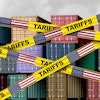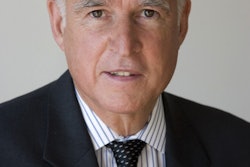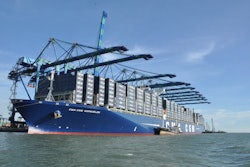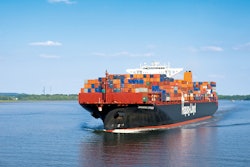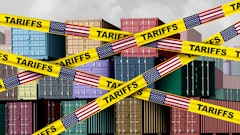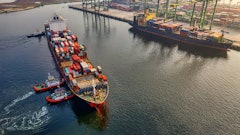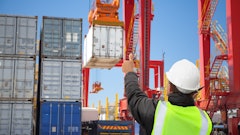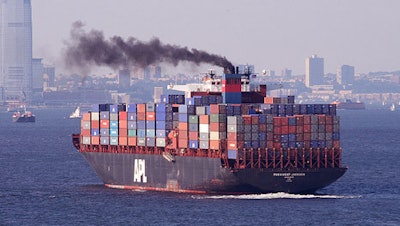
Disagreement among nations means no carbon emissions targets have been set for international shipping, but voices from within the industry are calling for global curbs to be set soon, before countries or regional blocs take matters into their own hands, according to the London, U.K.-based Daily Mail.
The shipping sector, like aviation, was excluded from any target cuts under last year's Paris climate deal, which set a goal of restricting the rise in global average temperature to less than 2 degrees Celsius.
Shipping now makes up around 2.2 percent of world emissions of carbon dioxide (CO2), the main greenhouse gas responsible for global warming, and that share is forecast to rise dramatically if nothing is done to slow it.
The International Maritime Organization (IMO), the U.N. agency responsible for regulating pollution from ships, forecasts CO2 emissions from vessels rising anywhere between 50 percent and 250 percent by 2050 in its "business as usual" case, as economies grow and trade increases.
So far, specific targets to curb emissions growth have been blocked by emerging countries like India and Brazil, which expect their shipping volumes to increase over the next decades.
But some shipping companies, especially ones that have invested in newer, more fuel-efficient ships, say the IMO should take action to limit emissions, before regulation is imposed by regional blocs like the European Union or individual states.
A session in late April of the IMO's Maritime Environment Protection Committee agreed only to defer further discussion on emissions to its next session in October. That will be the last chance to come up with targets before the next round of global climate talks, COP-22, the following month in Marakesh.
"The failure to agree a process for emissions reduction puts significant pressure on generating a positive outcome," said Alastair Fischbacher, head of the Sustainable Shipping Initiative, an industry association that promotes efficiency standards and includes the world's largest container shipping company Maersk Line and huge agricultural shipper Cargill.
"The shipping industry cannot go to COP-22 in Morocco without this. Not only will it damage the industry's reputation, it also runs the risk of external regulators taking the matter into their own hands and circumnavigating the IMO, which no-one in the industry wants to see."
Peter Hinchliffe, secretary general of the International Chamber of Shipping, which represents more than 80 percent of the world's merchant fleet, predicted the IMO would deliver a framework for CO2 cuts; the question is when.
"It is the nature of international debate that sometimes it takes longer than some would wish," he said.
To read more, click here.


